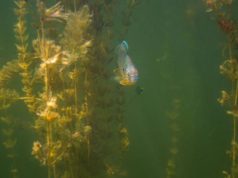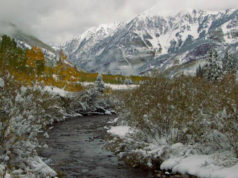
INTERGOVERNMENTAL PANEL ON CLIMATE CHANGE REPORT INDICATES SEVERITY OF CLIMATE CHANGE
The Intergovernmental Panel on Climate Change just released its comprehensive conclusions on climate change research, which indicated that both mitigation and adaptation will be necessary in order to insure a more secure future.
The report, approved by representatives from 195 nations around the world, stated that from their review of climate change research they concluded that the evidence of climatechanging impacts is most prevalent and obvious among natural ecosystems. Scientific research has indicated that many species have shifted their geographic ranges, seasonal activities, migration patterns, abundances and species interactions in response to climate change.
A concern depicted in the report was how climate change has increased temperatures. Rising temperatures globally are responsible for glacial melt and permafrost thawing, and both glaciers and permafrost are essential for our planet’s water storage. According to the report, in a little over a millennium the planet could see the near complete loss of the Greenland ice sheet, which would cause up to a seven-meter sea level rise across the globe. The report details impacts to be expected on crops, animals and weather if emission are mitigated or not. If emissions are mitigated, the temperature increase will be a few degrees, and if no action is taken, the temperature increase could be up to almost 12 degrees in the Northern Hemisphere.
“It’s not a choice between cutting emissions and building resilience anymore. We need to do both, and we need to do them fast,” Rebecca Shaw, lead author of Chapter 16, Adaptation, Opportunities, Constraints and Limits in the report, said an Environmental Defense Fund press release.
NEW OCEAN AMBASSADORS PROGRAM INVITES COLORADANS TO SPEAK UP FOR OCEANS
Colorado Ocean Coalition members assert that their new Ocean Ambassador Program couldn’t have come at a more opportune time, considering that the annual nation-wide water shortages are becoming a common crisis and water pollution and ocean acidification have become a critical global issue.
The program will educate attendees about marine conservation problems and solutions, watershed health, marine sanctuary protection and legislation and how to best utilize social media to enhance conservation efforts.
“One of the Colorado Ocean Coalition’s biggest mottos is, ‘Just because you can’t see the ocean doesn’t mean you can’t help protect it,’ and it’s true how connected we are,” says Mehgan Heaney-Grier, the program coordinator for the Ocean Ambassador Program. “All this water is either fueling different communities along the way, fueling the estuaries and then eventually leading to the ocean. Promoting the further understanding and education of this connectivity is really important.”
The deadline for applications for this Ocean Ambassador Program is April 11. The program, which lasts five weeks, is funded by the National Marine Sanctuary Foundation and aims to attract candidates from all cultural backgrounds and professions who are passionate about ocean conservation.
Attendees of the program will experience hands-on experimental work, field trips and an array of lectures delivered by members of the ocean protection movement, the National Marine Sanctuary Program and regional water quality and watershed experts.
Graduates receive a certification of completion and have a 50-hour commitment to their choice of conservation work. The goal of the program is to give attendees the extensive knowledge and communication skills that will help them become an educator and recruiter for water conservation efforts in their community. The program will continue to support graduates’ growth by providing outreach materials, such as water quality monitoring equipment, speaking engagements and scheduling support.
Respond: [email protected]














